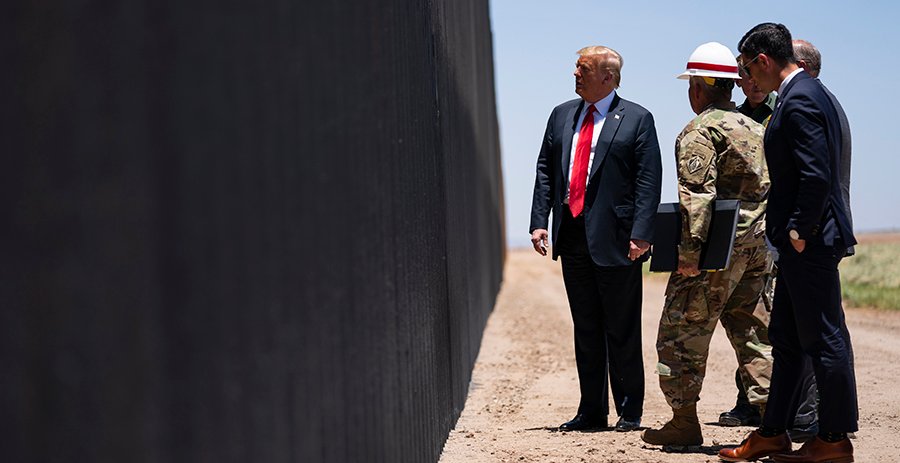border
GOP Lawmakers Rally Behind Trump to Tackle Border Issues and Unveil Prop. 314

Arizona Republicans are gearing up to push new legislation aimed at border security following the approval of Proposition 314 and the promise of mass deportations from President-elect Donald Trump. On January 8, Senate Republicans unveiled their 2025 Majority Plan, outlining priorities for the upcoming legislative session, with a strong focus on border-related issues.
The plan emphasizes support for Proposition 314, which criminalizes entering the country outside designated ports of entry. Republicans propose enhancing law enforcement resources, aiding federal immigration enforcement, and increasing penalties for fentanyl offenses.
Challenges exist, however. The enforcement of Proposition 314’s provisions on illegal entry will only commence if a comparable law in Texas or another state has been effective for 60 days. Currently, Texas Senate Bill 4 is under legal scrutiny in federal court.
State enforcement agencies warn that funding is critical for effective implementation of border laws. Many lack sufficient personnel, and the existing jail capacities may face strain as demands increase.
Any proposed border legislation will require the approval of Democratic Governor Katie Hobbs, who previously vetoed similar measures. Democratic lawmakers and activists have voiced their opposition to Proposition 314 and are likely to challenge any new policies they view as inhumane.
Noah Schramm, a border policy strategist with the ACLU of Arizona, raised concerns about potential public backlash against aggressive deportation strategies. “The public’s reaction could significantly influence what transpires in the Legislature,” he stated.
Anticipating Trump’s mass deportation measures, Senator John Kavanagh plans to introduce various border-related bills, including one to lease two unused prisons to the federal government at a nominal fee. These prisons, located in Marana and Florence, were closed in 2023 as part of cost-reduction efforts.
Kavanagh is also pushing for legislation to require immigration status screenings for inmates upon their release. Additionally, he aims to facilitate training for law enforcement personnel to identify individuals who might be in the country illegally.
“Training for detention officers is critical for effectively identifying illegal immigrants so they can alert ICE,” Kavanagh added, emphasizing the importance of removing criminal elements as part of the deportation initiative.
As preparations for upcoming border laws progress, law enforcement officials are advocating for state funding to support agency efforts. The Arizona Sheriffs’ Association has requested approximately $50 million for fiscal year support in drug interdiction initiatives along the border.
Yavapai County Sheriff David Rhodes, president of the association, noted that budget constraints will affect decisions made by individual law enforcement agencies. “Funding availability will dictate our policy and priorities,” he remarked, highlighting the financial burden of enhancing border security.
Kavanagh, who chairs the Senate Appropriations Committee, questioned the association’s funding request, deeming it excessively high. He pointed out deficiencies in their assumptions regarding the legal proceedings of apprehended immigrants.
Looking ahead, Kavanagh remains optimistic about the border situation, believing Trump’s presidency will reduce illegal crossings. “With Trump’s leadership, we shouldn’t see massive waves of illegal immigration,” he concluded, asserting that a focus on long-term border security could be more effectively attained.


















